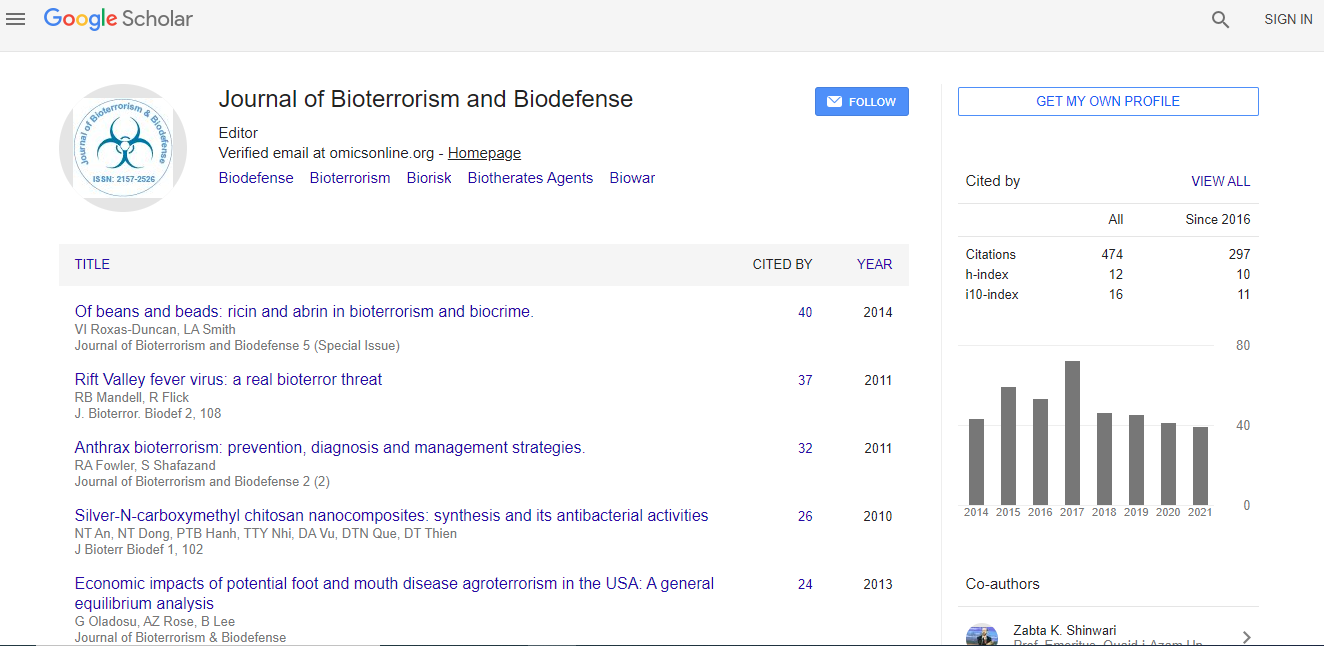Efficacious peptide-based plus adjuvant vaccine against SARS-CoV-2
*Corresponding Author:
Copyright: © 2021 . This is an open-access article distributed under the terms of the Creative Commons Attribution License, which permits unrestricted use, distribution, and reproduction in any medium, provided the original author and source are credited.
Abstract
Currently, there are no effective drugs that can halt the SARS-CoV-2 pandemic, but vaccines have historically helped us eliminate smallpox and successfully control numerous viral diseases. The spike protein (S) of SARS-CoV-2 binds to angiotensin-converting enzyme type II (ACE2) through the receptor binding domain (RDB), which contributes to viral attachment, fusion, and entry. Thus, targeting the S protein will inhibit viral entry, therefore stopping infection. We have selected dominant and specific B cell epitopes of S protein using the antigenicity predicting and homology analysis approaches as vaccine candidates. These peptides were mixed with different adjuvants (QS21 or Al(OH)3) and administered to BALB/c and C55/B6 mice by Sub-Q. Our peptide-based vaccine can induce a high and persistent antibody response against the administered peptides and S protein. Overall, the Al(OH)3 adjuvant generates a longer immune response than QS21, with the Al(OH)3 increasing CD3+, CD4+, and CD8+ T cells and decreasing B cell response compared to QS21. The QS21 adjuvant increases B cell and decreases T cell response compared to the Al(OH)3 adjuvant. When compared to convalescence samples, the antibody response of peptide plus adjuvant vaccine generated similar patterns tested by the epitope mapping assay. The antisera from the peptide vaccine also showed neutralization activity, which was tested using the pseudoviral particle assay. We also identified that some of the selected peptides show the potential for diagnostic ability as full proteins. The data revealed that this peptide mixture with the traditional Al(OH)3 adjuvant can produce a durable B cell and potent T cell response. The advantage of peptide-based vaccines is their ability to prevent autoimmune responses, while allowing the introduction of new peptides to manage mutations. The results showed no adverse effects associated with the vaccine, making it suitable for current and future SARS-CoV-2 infections

 Spanish
Spanish  Chinese
Chinese  Russian
Russian  German
German  French
French  Japanese
Japanese  Portuguese
Portuguese  Hindi
Hindi 